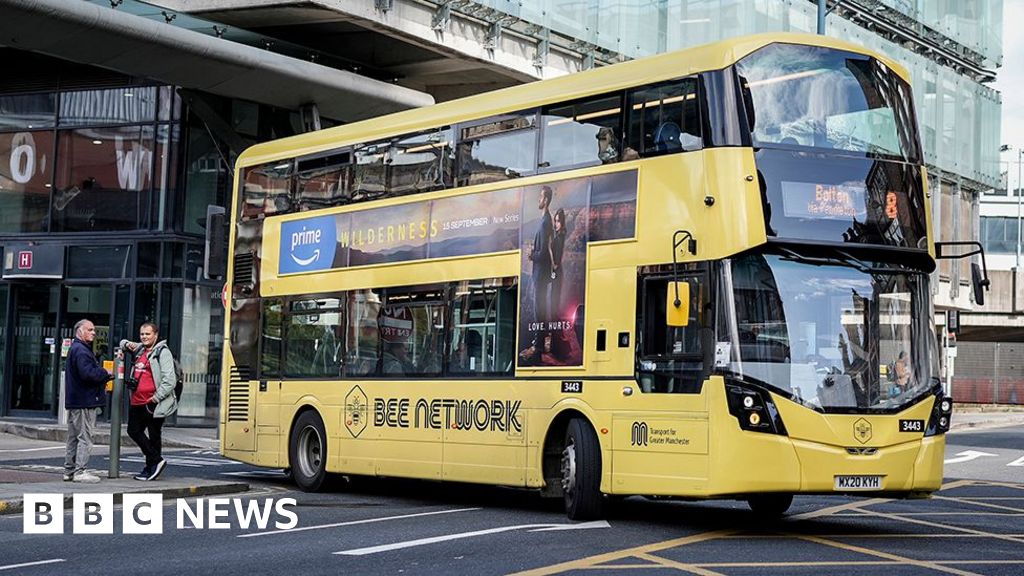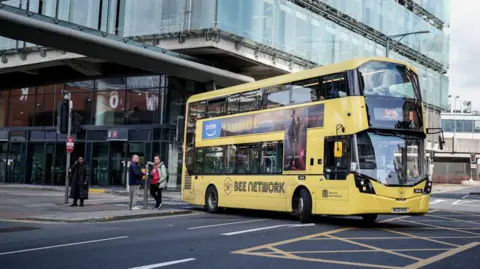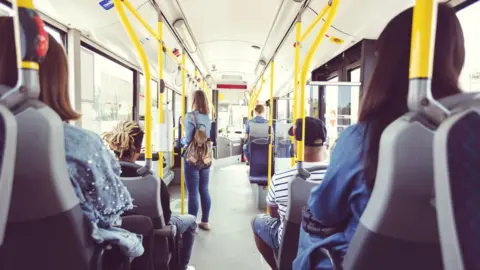
More bus services could come under control of councils under planned law
- Business
- September 9, 2024
- No Comment
- 107
 Getty Images
Getty ImagesMore local authorities in England are to be given powers to take control of bus services under legislation being laid before Parliament on Monday.
Transport Secretary Louise Haigh says the changes will deliver a “bus revolution” that will save vital routes.
It will allow all authorities to introduce a franchising system, under which they can decide routes, timetables and fares, with operators bidding to run services for a fixed fee.
Some industry figures, however, said minimum service level guarantees should also be set out as routes and timetables have faced cuts in recent years.
Silviya Barrett, director of policy and research at Campaign for Better Transport, said giving councils more power would create “a more reliable bus network for all”.
“Whilst franchising may not be suitable for all areas, everyone should have access to a quality bus service without risk of it being cut, which is why we are also calling for a minimum service level guarantee and long-term, ringfenced funding for all local authorities,” she said.
Sandra, from Macclesfield, has seen the frequency of local services reduced which makes it tricky to plan trips.
“I’ve looked at doing evening classes at the leisure centre but the timings of the buses mean that to do a 45-minute class it would be a half-day outing,” she told the BBC’s Today programme.
“Somehow people have to be persuaded to use the buses and that’s not going to happen until there’s a better service available.”
‘No overnight fix’
Until the 1980s, most bus services were delivered through publicly owned companies, often run by councils, but in 1986 services outside London were deregulated and privatised, leading to the mass sale of council bus companies.
In London a franchising system was introduced, with Transport for London deciding routes, timetables and fares and operators bidding to run services for a fixed fee.
There are only a few areas in England where the local bus company is still owned by the council, and currently only areas with metro mayors can introduce “franchising” to private companies.
Last year, Greater Manchester became the first place outside of London to bring bus services into public control since deregulation. The “Bee Network”, where all-night services have been trialled, has been described as a success, despite facing some teething problems with delays.
In the run-up to the general election, Labour pledged it would hand all local transport authorities the power to run their own bus services and lift restrictions on new, publicly-owned bus operators.
Adam Hug, a Labour councillor and transport spokesperson for the Local Government Association which represents councils, welcomed the changes but warned they were not going to be an “overnight fix” for the bus network.
“It’s going to take time and it’s not going to be delivered in the same way in every part of the country,” he said.
Funding question
Ms Haigh said that after “decades of failed deregulation… local leaders will finally have the powers to provide services that deliver for passengers”.
But shadow transport secretary Helen Whately said Labour’s plans were “unfunded” and the government needed to explain whether local authorities would be expected to raise tax or cut services to fund the proposal.
“Moreover, it won’t make a blind bit of difference for passengers.
“It won’t increase the number of services and they would much prefer to have the £2 fare cap extended at the Budget,” she added, referring to a policy introduced by the Conservative government to cap single bus fares on participating bus routes at £2, which has been extended until December.
 Getty Images
Getty ImagesThe government has also launched a consultation on simplified guidance aimed at speeding up processes and reducing costs for local councils looking at bringing services into public control.
A “Better Buses Bill” will be put forward later on in this parliamentary session, which will look at measures for areas where leaders would not consider franchising.
It is not known how many councils will take up the new powers.
Financial risks
The head of transport at East Cheshire Council, Mark Goldsmith, said it was unlikely to operate buses directly, but franchise agreements do have “some benefits”.
“It gives us more powers to control the market a little bit more without actually having to run it all.”
However, there are financial risks for councils running services under franchise.
“In most franchising arrangements it’s the local authority who takes the revenue risk, so if passenger numbers aren’t where they expect to be, they and their council tax payers take the hit,” said Graham Vidley, head of the Confederation of Passenger Transport, which represents the bus industry.
Mr Vidler added that the government faced “tough decisions” in next month’s Budget.
“Will they continue to support local authorities and invest in bus services in the way that the last government did? Will they commit to an extension of the national £2 fare cap beyond New Year’s Eve when it’s currently scheduled to end?”
#bus #services #control #councils #planned #law









